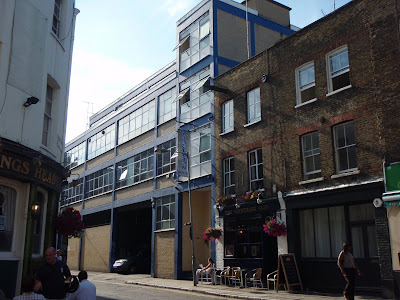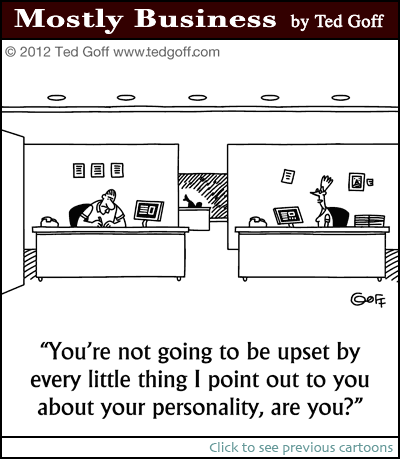 In her book, How to Think Like a CEO, Ms. Benton (picture) describes 22 vital traits to be the person at the top:
In her book, How to Think Like a CEO, Ms. Benton (picture) describes 22 vital traits to be the person at the top:1. Secure in self
2. In control of attitude
3. Tenacious
4. Continuously Improving
5. Honest and Ethical
6. Thinking before talking
7. Original
8. Publicly modest
9. Aware of style
10. Gutsy / A little wild
11. Humorous
12. A tad theatrical
13. Detail oriented
14. Good at their job and willing to lead
15. Fighters for their people
16. Willing to admit mistakes, yet unapologetic
17. Straightforward
18. Nice
19. Inquisitive
20. Competitive
21. Flexible
22. Good Storytellers
To be the best and the brightest, you must also:
• Build followership
• Be consistently impressive, credible, genuine, trusted, liked, comfortable, and confident
• Avoid self-sabotaging habits
• Create other leaders
I like lists, I like lists very much, but the more lists you read, the more shallow they become. Take the above Benton lists for example. Are we supposed to look at our CEO's and tick any of the 22 items if we recognize such an item or attitude in our CEO ? That is precisely the weak point of the above lists, they only feature attitudes, there is hardly any reference to knowledge. Leadership, it seems to me, has been boiled down to a soft potpourrie of values and attitudes. Attitude is power so to speak. Show me the leadership lists that feature brilliant minds, highlighting exceptional knowledge, in math, in chemistry, 7 languages spoken and written, in depth knowledge of production processes, customer behavior, history, statistical analysis, masters in science and physics, authors of a dissertation or a thesis, I am looking for lists featuring CEO's who can fly a plane, repair a car, build their house, explain the stars and planets using their correct Latin names, understand and speak Chinese, make their own excel spreadsheets with turntables, build a solar panel driven kitchen for the local scouts, write a haiku, were number 1 in class, think faster than the majority of their employees, predict correctly the outcome of an innovation, solve the IHT crossword without mistakes, …knowledge, not attitude, is power!!!









 surprising third place after China and the US.
surprising third place after China and the US.





























 Gert Van Mol and major Brulc talk about The WSJE Future Leadership Institute after Gert gave a speech at the European Regional Economic Forum hosted by the city of Nova Gorica.
Gert Van Mol and major Brulc talk about The WSJE Future Leadership Institute after Gert gave a speech at the European Regional Economic Forum hosted by the city of Nova Gorica. 




























